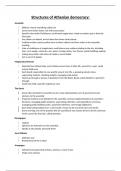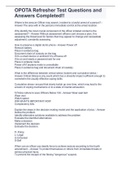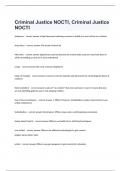Resume
Summary Full overview of the OCR Democracy and the Athenians
- Cours
- Établissement
18 pages summary, has the history from Solon/Cleisthenes/Ephialtes/Pericles etc and also has the set sources for OCR: Aristophanes, Plato, Pseudo-Xenophon, Aeschylus, Euripides and Thucydides (analysis, quotes and summaries)
[Montrer plus]







